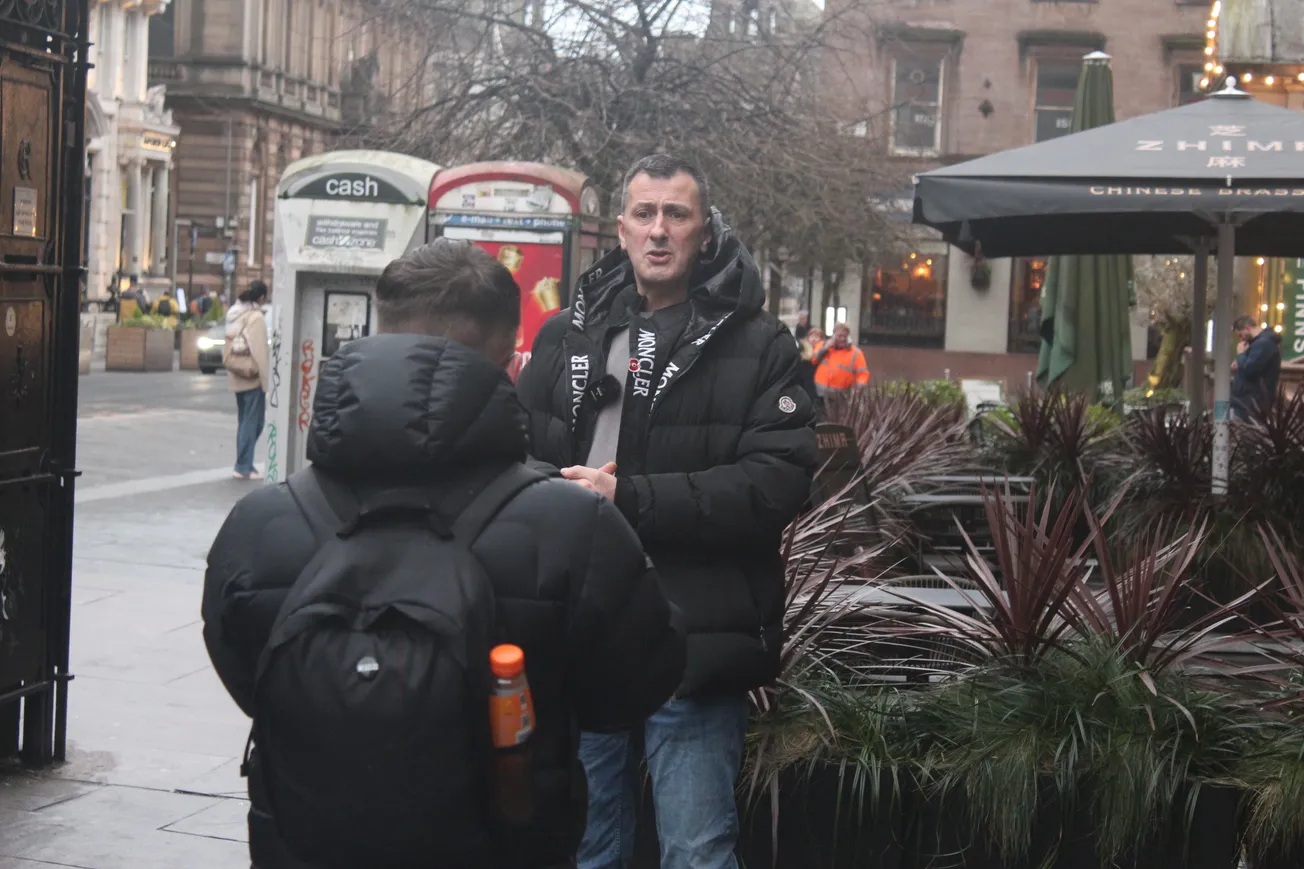A tall man dressed in black is standing in an alley in the city centre. “I used in this lane, man,” he tells the camera, strewn needles and empty cans lying just out of frame. “Doun the bottom there, there used to be a big auld air conditioning unit we’d aw sit oan, injecting, smoking crack [...] Broken by life, anchored down in the brokenness.” This is Francis, presenter of the YouTube and TikTok account The Streets Glasgow. He’s wearing a black Moncler puffer jacket, with a wireless Røde mic attached, as he is in most of his videos. He speaks fluidly, seemingly improvising and bringing his hands back to a firm clasp after gesticulating, like a street clergyman of sorts.
Francis introduces the viewer to a young man called Wee Jamie. He’s currently staying in a hostel in the city centre and has been clean for four days. “I used to use down this lane myself,” he tells Francis. “I was down here two weeks ago, and it just reminded me — a guy was just injecting into his groin, and he went over. He was wae two other people, and the two other people left him. That’s the thing, man, if I wisnae here, the guy could’ve been sitting down here for … d’you know what ah mean?” he trails off, shaken by the thought. Francis finishes his sentence for him, matter-of-factly, “Could’ve been OD’d and deid.”
If you're reading this and you haven't yet joined our free mailing list, click here to get Glasgow's new quality newspaper in your inbox every week or use the buttons below to become a paying supporter.
In the space of five months and 20 episodes, The Streets has clocked up hundreds of thousands of views — even if googling them can pull up some confusing results, concerning Mike's Skinner's tour dates.
In one of their first videos, uploaded last September, Francis interviews a homeless man, Jojo, as he smokes a crack pipe. Jojo becomes more animated as he takes repeated hits of the pipe between answering Francis’s questions. In another video, Francis follows a man called Stuart as he scores and proceeds to inject heroin. Since these first videos, the episodes have grown in scope and length — taking aim at Glasgow’s new safe consumption room (which Francis argues is too far from the city centre and encourages further drug use rather than abstinence or rehab), or tackling issues like the housing crisis or immigration.
The Streets has also morphed into an ad hoc charity, delivering sleeping bags, tents, clothing, mobile phones, bus passes and accommodation to Glasgow’s rough sleepers. The donations have been made possible by a fundraising drive they began in November with a target of £1,000 that was met within a few days. It has since raised over £9,000.
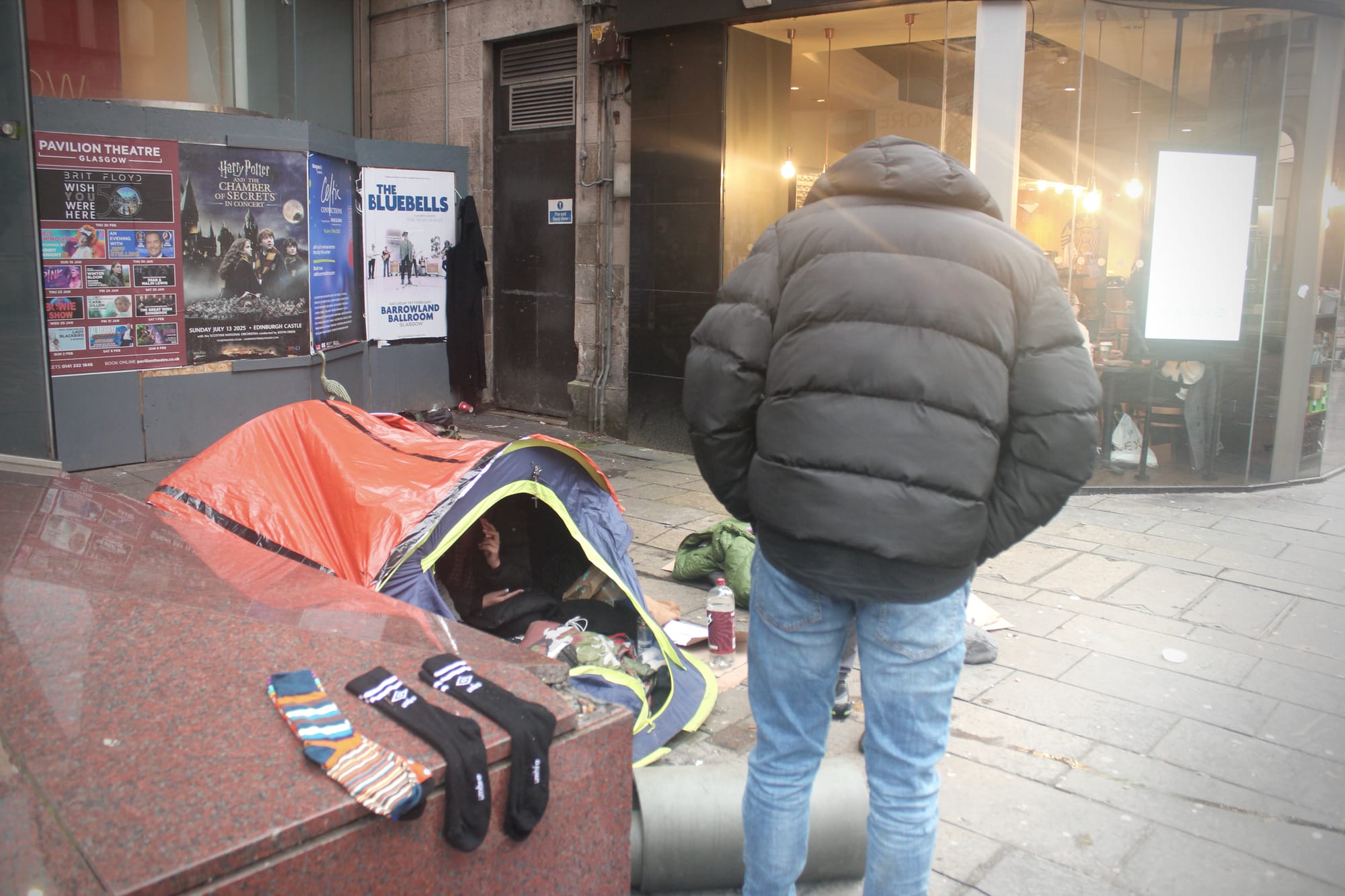
The Streets promises to give Glasgow a raw view of the homeless experience, hoping to change viewers’ minds on the plight of the ‘still suffering addict’, to borrow one of Francis’s trademark phrases. Francis shows the viewer a gritty undercurrent to the city centre, often hidden just out of sight. Needles, tin foil, citric acid and broken glass, sure — but broken people too. We’ve been introduced to a cast of characters, with regular appearances and updates from Wee Jamie, as well as Conor, David and John. In a Christmas episode, Francis invites a group of the regulars out to a Christmas market for lunch, then to the cinema to see a film. Afterwards, he takes one of them, John, to Slater’s to buy him a suit for his dad’s funeral. Later in the video, Francis brings David, an Irish man he met that day, to a Travelodge, where The Streets have arranged to put him up for the night.
Let’s push things forward
Francis is tall, with short, dark hair and angular features. He’s 50 years old but doesn’t look it — especially for a man who’s spent more than half of his life rough sleeping and using drugs. Cameraman and video editor Aldo prefers to stay behind the scenes. The pair are sitting outside a coffee shop next to Central Station on an overcast Tuesday afternoon, taking a break from filming. Francis is wearing a gold chain with a crucifix, a pair of Air Max trainers, jeans, jumper and the trademark Moncler. He’s routinely recognised by passersby. “Great work, bro, keep it up”, one man says. “Can I shake yer hand, mate, love they videos” says another.
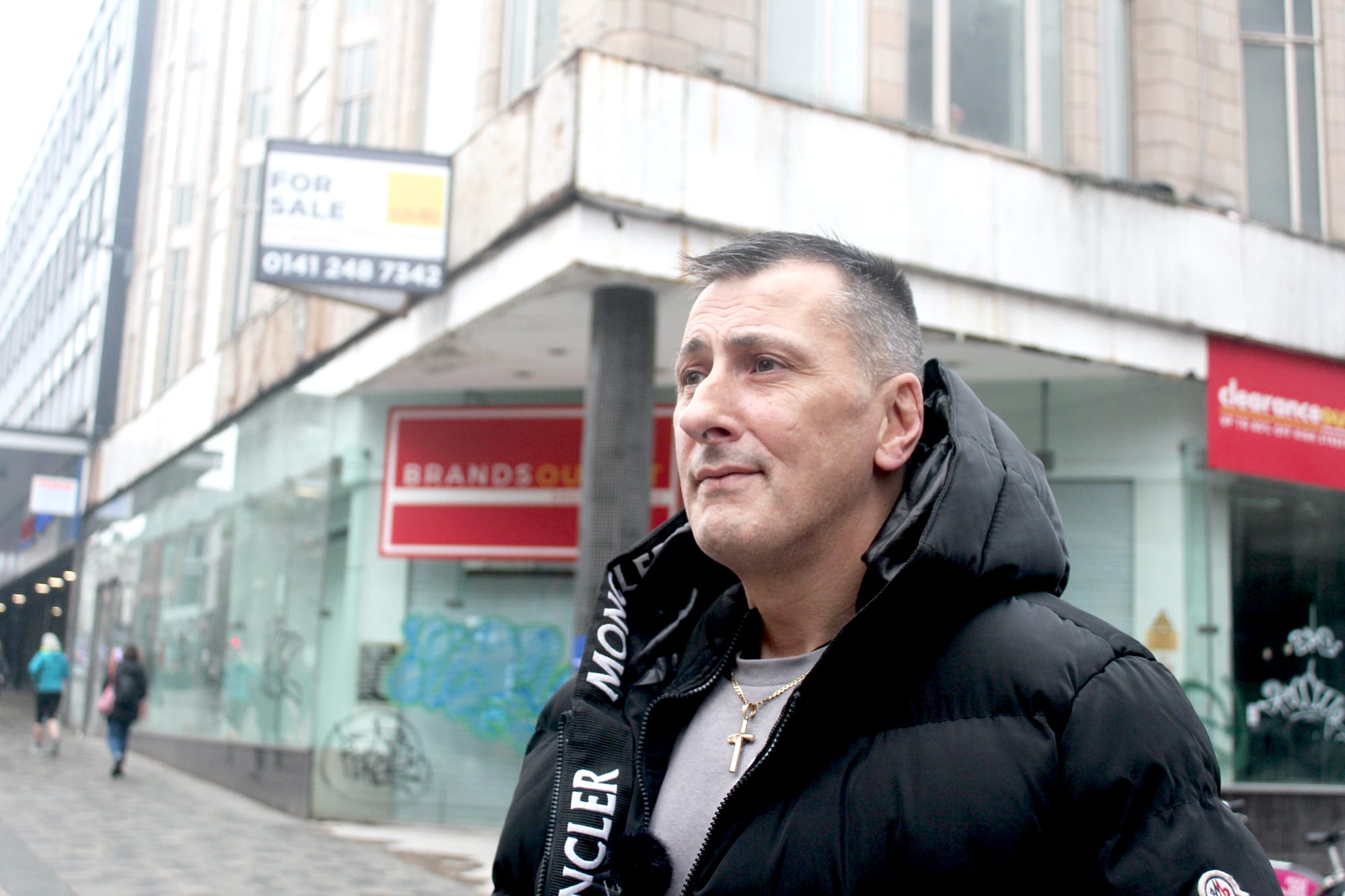
Two years ago, at a resettlement service for people experiencing homelessness, Francis found God and began to turn his life around. The channel regularly features stories of recovery, often religious in tone. This might take the form of a visit to the Glasgow City Mission, or Francis sharing his own tale of redemption. There’s a kindness to him, an approachability and open-mindedness, even when he wades into controversial topics. Unlike Francis, Aldo is quiet. He rarely speaks, other than to correct or confirm one of Francis’s statements. Occasionally, he blurts, ‘That’s aff the record,’ in response to something Francis has said.
“The people in the UK need to understand this really is a disease. Naebody wakes up one day and thinks, ‘I'm going to jump into Glasgow city centre and start rough sleeping and getting a habit’. It disnae happen — these things are born out of severe trauma,” Francis says, chain smoking as he sips on a coffee.
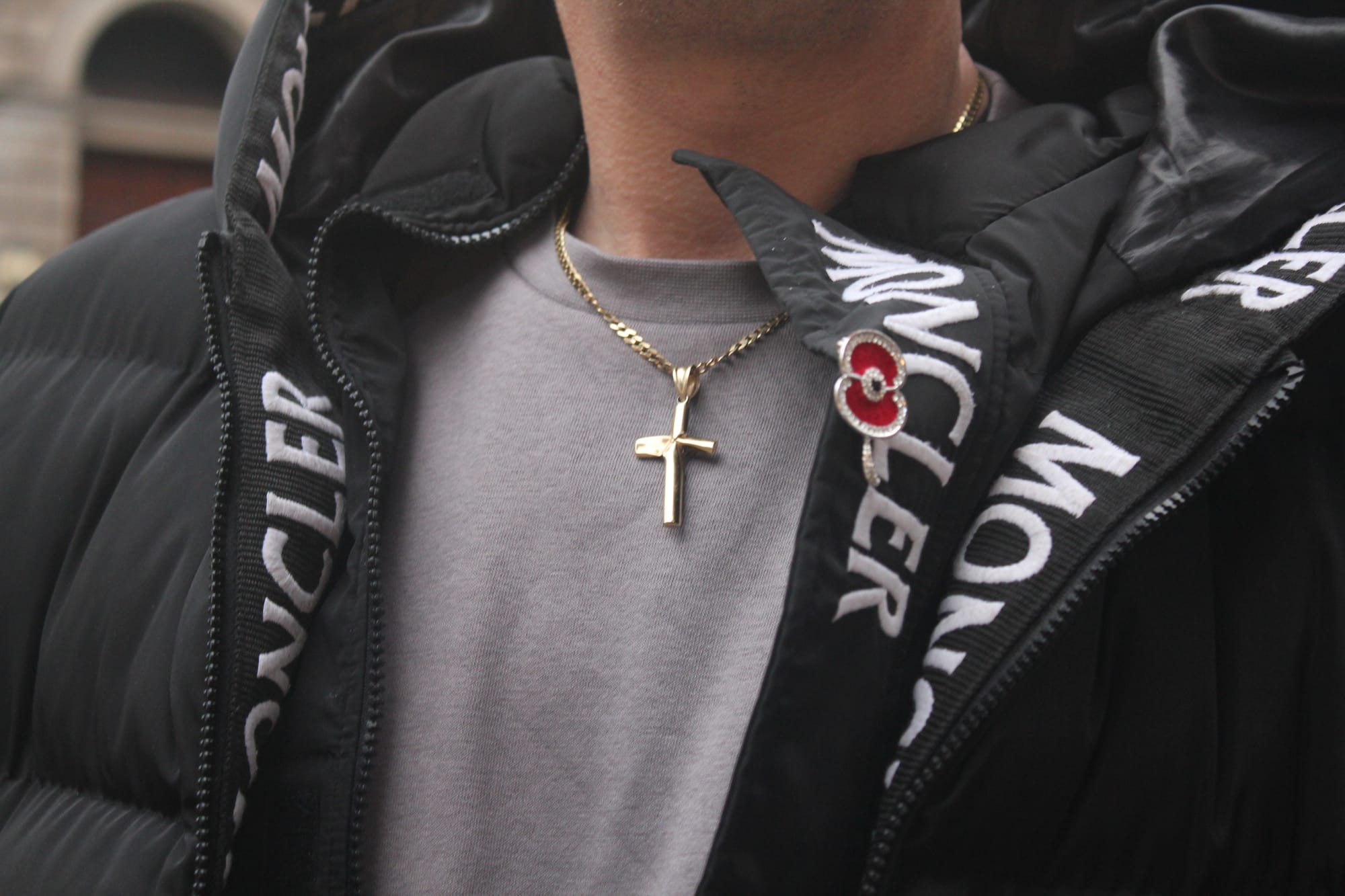
“Our mission is just to serve with peace, love and compassion, but it's for the still suffering addicts and rough sleepers — it's not about money, it's not about views, it's just about getting that message of understanding out there,” he claims. The videos regularly receive hundreds of positive comments, and rarely a negative word. Francis is called a “hero” and an “angel”. In a recent clip, someone left a comment saying one of their interviewees “stole ma nephews bike”. The Streets responded quickly, offering the commenter a Ridgeback: “all good just need a pump for tyres and off he goes”.
Blinded by the lights
During our interview, campaigner Sean Clerkin comes over to introduce himself to Francis. He congratulates the pair on their success, and says he agrees with “99% of what they have to say”. The exception, he adds, is Francis’s views on immigration. He tells him that greater numbers of asylum seekers and refugees aren’t to blame for the homeless accommodation shortage. Rather, he says, it’s a question of Glasgow needing to access extra resources from central government. He finishes on a conciliatory note, telling Francis he’s a Christian like him. “It’s the only way to be — following the lord,” Francis says, shaking Clerkin’s hand, thanking him and smiling as he says goodbye.
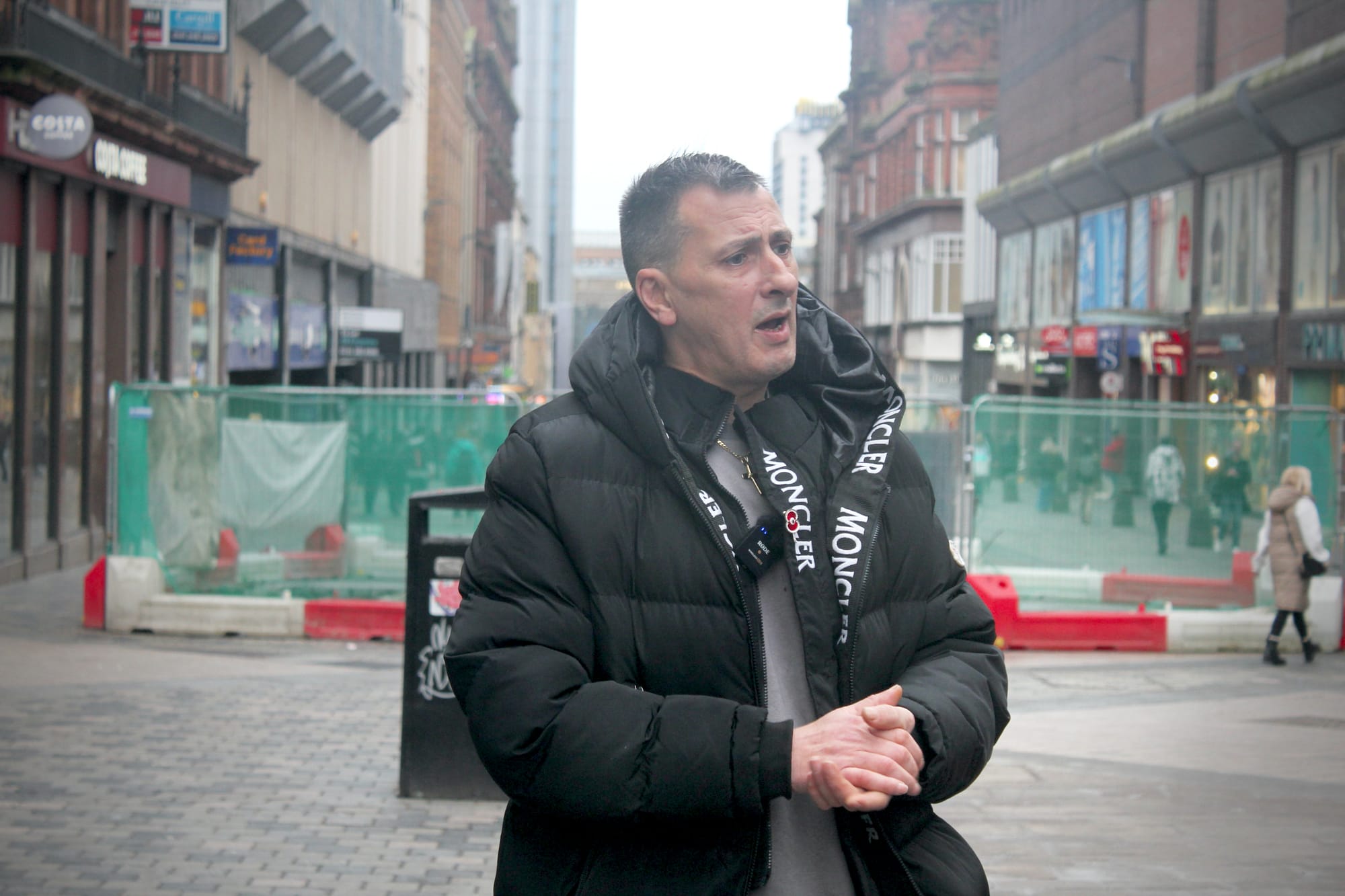
The backdrop for this conversation is the plain fact that Glasgow accommodates 4,075 asylum seekers as of September 2024 — 95% of the Scottish total and more than any other UK council area. This forms part of the UK Government’s asylum dispersal scheme, meaning funding is provided by Westminster, although the Home Office provides only £750 a year per asylum seeker. Council leader Susan Aitken has said that as Glasgow is housing thousands more asylum seekers than the “allocated amount”, the city could withdraw from the dispersal scheme unless a “funded bespoke solution” for the city is found — having “overspent in our homelessness budget to the tune of £26.5m”.
The number of homeless accommodation applications among those granted leave to remain (overseas nationals with permission to stay in the UK until their visa expires), grew by 96% between 2023 and 2024, from 1,384 to 2,709, according to a report by the Glasgow City Integration Joint Board. This “unprecedented increased demand”, partly due to a speeding up of the asylum decision making process introduced in July 2023, has seen rising numbers of homeless people in the city, as well as a rapid rise in the use of temporary accommodation.
This increase, particularly within the city centre, has placed “significant challenges on Homelessness Services as well as the local communities” according to the report. Last month it emerged Glasgow City Council is receiving 200 threats of judicial review per month over unsuitable accommodation or failures to provide temporary homes.
Recent figures obtained under a Freedom of Information request by the Scottish Tenants Organisation, published by the Glasgow Times, showed former asylum seekers account for more than half (4,857 out of a total of 8,170) of those in temporary accommodation, as well as two-thirds of those in hotels for homeless people in Glasgow. Clerkin, campaign co-ordinator for the STO, told the Times that “both British and Scottish Governments have to give extra funding to Glasgow as a special case to provide more quality temporary accommodation and so that more social rented homes can be built [...] for both asylum and domestic households together”.
In an episode of The Streets titled ‘Scotland’s Housing Crisis’, the thumbnail of which reads ‘THE OPENING OF OUR BORDERS’, Francis makes his views on immigration clear. “Every hostel is full to the brim, and you’re no seeing Tam and Joe in they hostels, y’know — you’re seeing aw different ethnics,” he tells the camera. “Nae disrespect, there’s not one disrespect in this heart and this voice when it comes to other people fae other countries, but what this heart does feel is we must put our people first.” Over the course of the videos The Streets have put out, with the exception of one white woman interviewed briefly at a recovery event, all their interviewees have been white men.
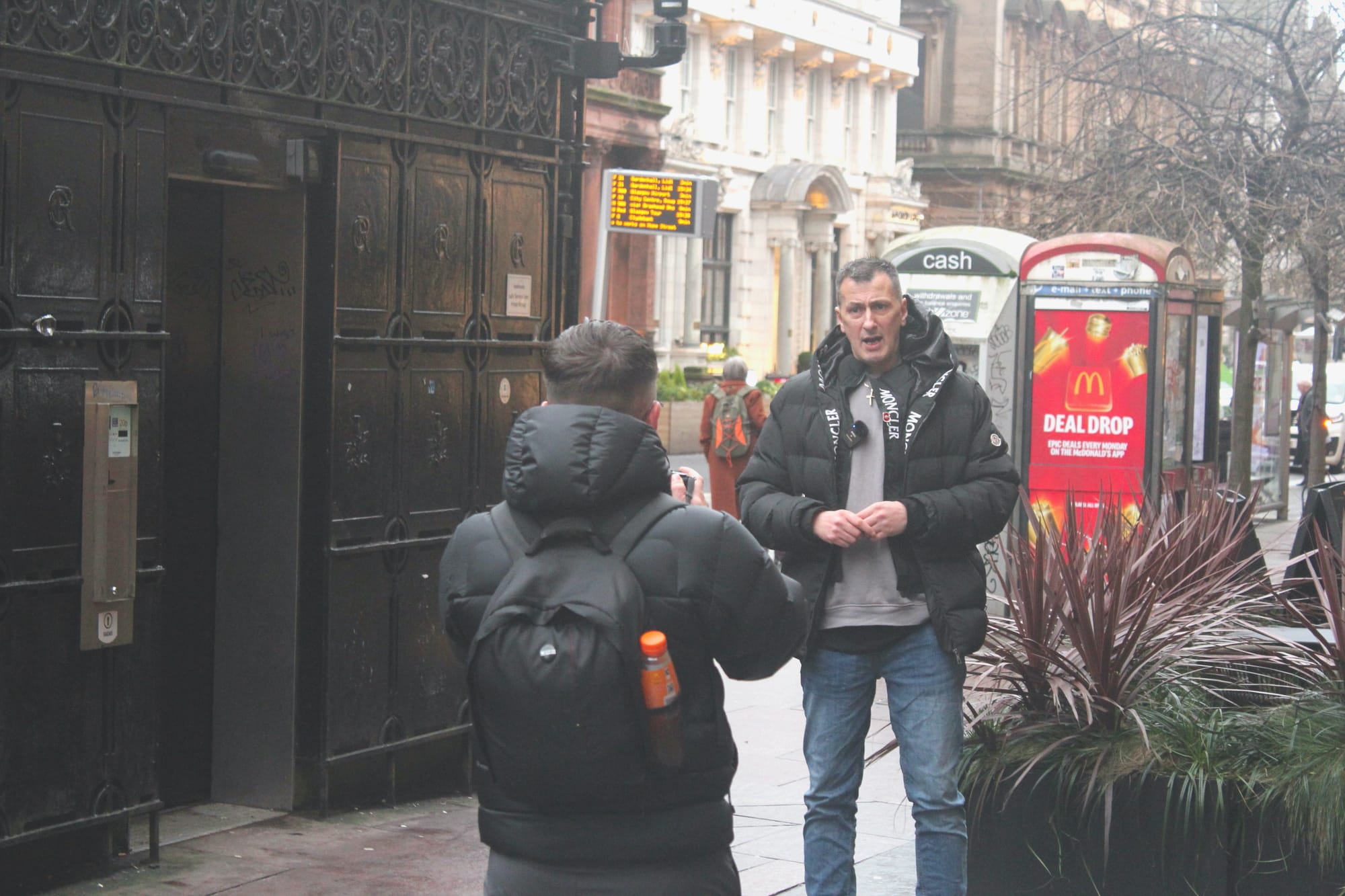
When asked about Clerkin’s criticism and about expressing views some might consider racist, Francis is unfazed. “My heart does not know discrimination, and it does not know racism, but when I see my country filling up with other people from other countries, then you listen to the government excuses and why they do that, then you see the attacks happening, you know, all of that stuff — and when any others go to stand up about it, we’re shut down or put in prison.”
Francis says that by putting “vulnerable people on top of vulnerable people” we’re creating “a pressure cooker”. Then, he argues rather ominously, “it's just a matter of time before it explodes”. He adds: “I believe everybody's entitled to safety, but so is the people in the countries that the borders are opening.” When I point out the borders aren’t open, he replies, “Yeah, I know, aye, there’s something getting done about it now — I truly believe, before Trump was elected, there was nothing really happening. Trump gets elected and now all these people are, you know, it's like the bandwagon int’it?”
I ask him if he agrees with Trump. “I agree with some of his stuff, you know, like immigration [...] Do I agree with everything he says? No. I don't think the man should be allowed to talk the way he does, like: ‘we're coming for you, we’ll kick your doors in’ — I don't think that's right, because these people that come into our countries are suffering, they're in pain”. He then goes on to say that “most of them are just here to tweak our system”.
Turn the page
Throughout the entire conversation, and the minor disagreement with Clerkin, Francis is polite and conciliatory, listening keenly and responding respectfully. As we get up to leave, he knocks over an open bottle of fizzy juice on a nearby table. “On the Moncler an aw,” I say, passing over a pack of tissues to clean up. “It’s a fake wan, so it disnae matter,” Francis says with a laugh. We’ve barely taken five steps before Francis and Aldo have stopped to speak to a guy leaning against a bin with a hat out in front of him. Aldo pops into Blue Lagoon to buy him a sausage supper while Francis checks in, seeing if he needs anything.
Afterwards, we make our way up to Renfield Lane. Francis wanders past Charles Rennie Mackintosh’s old Daily Record building, the ground floor and basement of which is occupied by Stereo. He walks past the bar to a window ledge and breaks off some brittle sandstone, rubbing it between his thumb and forefinger to make a brown powder, all the while explaining that this is passed off as heroin to unsuspecting addicts. This, for those in the know, is ‘brick dust lane’.
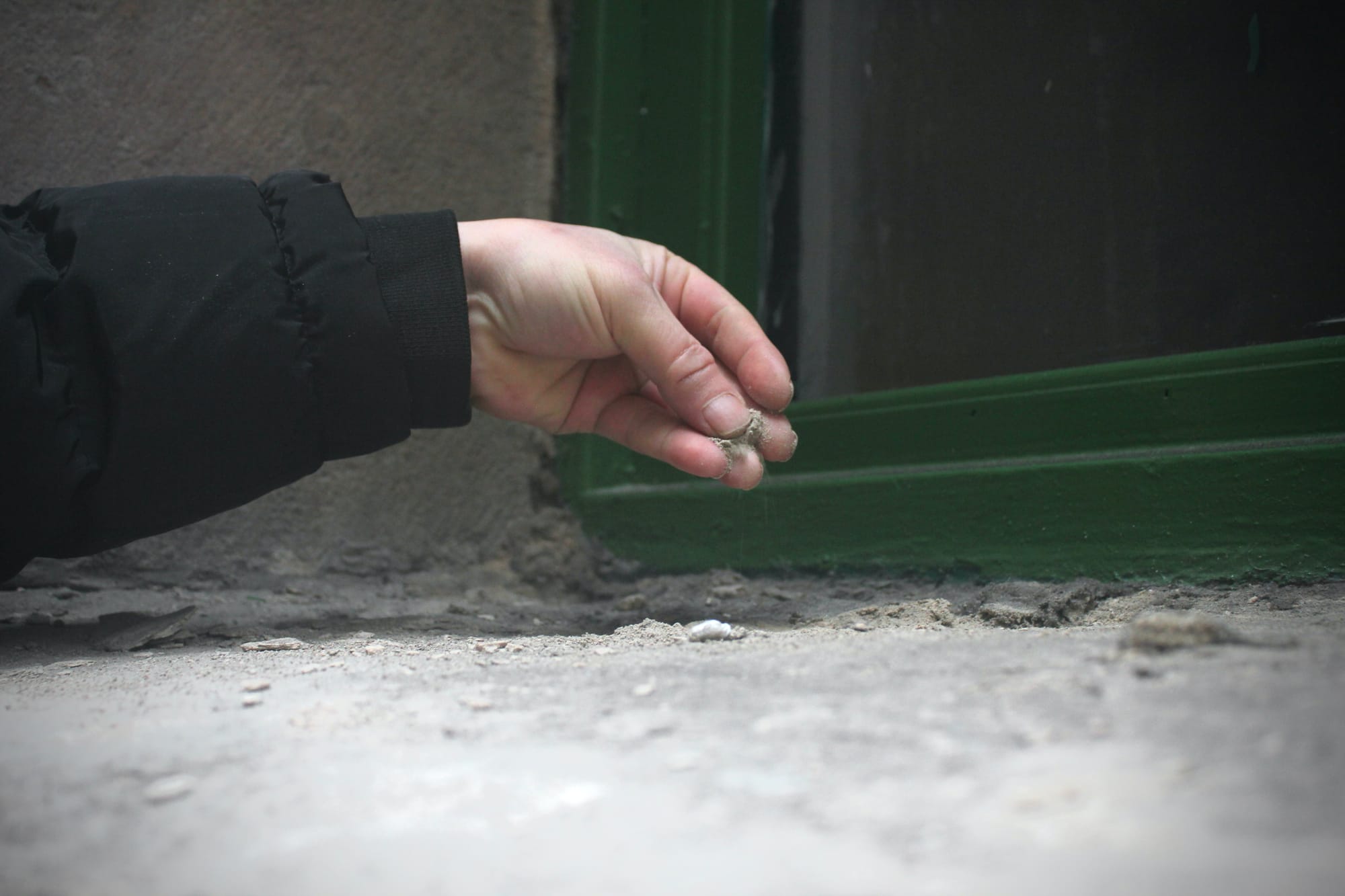
We walk up to Sauchiehall Street, navigating the building works. They stop to chat to a regular, Conor, who agrees to an interview. Afterwards, Aldo gives Conor his number, passing him a pen to write it on his hand. Francis then wanders over to a homeless man outside Tesco for a chat. He offers him a sleeping bag. The man has one already, but is in need of a tent. Francis asks him about access to services and offers some advice. Aldo takes his number and arranges the details of how to get the tent to him.
Then they’re off down towards Buchanan Street, stopping at a tent outside Starbucks to speak to a guy Francis used to use with. He’s reminded of the nights they were so cold they’d huddle together, hugging one another for warmth. “I feel very sad for the old me, you know, he was a suffering man […] Even in all that dirt and chaos and madness he was still a good guy. That’s why these eyes will never hold contempt or judgment for people. They only ever hold love and peace.”
Comments
How to comment:
If you are already a member,
click here to sign in
and leave a comment.
If you aren't a member,
sign up here
to be able to leave a comment.
To add your photo, click here to create a profile on Gravatar.

